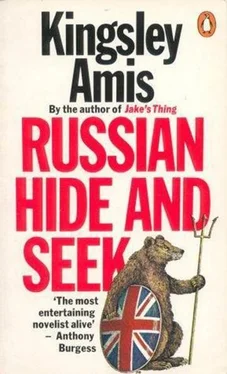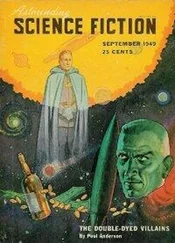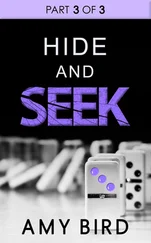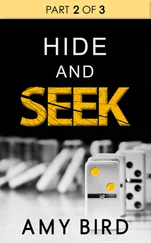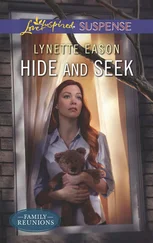‘What are we to do? Give up?’
After a small hesitation, Alexander said violently, ‘No, we can’t do that now. My advice to you is to take that list to the most senior member of the organisation whose name isn’t on it. I’m certain as I can be that it’s a fake, but we daren’t take the risk of letting anyone see it who’s on it, like Sevadjian. Now from the way Tabidze was talking, they’ve decided to wait for us to move, to reveal and incriminate ourselves. The only thing to do is seize the initiative by moving when they’re not expecting it. Added to which they may change their minds and pull us in at any moment.’ He glanced at the dial on his wrist. ‘I’m advancing zero fifty-two hours. I’ll see you at the rendezvous at seven o’clock.’
Theodore literally gasped. ‘You’re mad. How could I warn people in the time? And ours isn’t the only revolution, you know. Even if we-’
‘You’d better get a move on, hadn’t you?’
‘But this is… What chance do you think you’ve got?’
‘About none. But I must try it. Any other way we have no chance at all.’
‘Assuming all your deductions are correct. At least wait till we’ve consulted somebody.’
‘I’ve decided.’ Alexander’s manner had changed to a heavy obstinacy. ‘This is the only thing to do.’
Squaring his shoulders, he moved off. Uncertain, fearful, exasperated too, Theodore could still not forbear from calling ‘Good luck’ after him. He turned at once and came back and the two young men embraced warmly.
‘You’re a good pal, old boy,’ said Alexander.
‘And the same to you with knobs on.’
The land was darkening under a sky that, though covered with a yellowish haze, still seemed bright. The buildings, the trees and bushes were drained of colour, differing only in their tones of what was no longer green, grey or brown; a patch of vague shadow surrounded each of them. Little tremors, too brief and shifting to be called breezes, stirred in the air and made the parched leaves rustle, but it was still intolerably hot and humid. At the horizon the thunder muttered and rolled, like an artillery barrage in a kind of war nobody remembered or would have taken the least interest in. For fractions of a second at a time, pale flashes showed there. So much vapour hung in the atmosphere that human voices out of doors sounded hollow, as if contained by more solid barriers. A sweetish, sickly odour drifted about, derived from hot grass bruised by the feet of men and animals, fallen flower-petals and some spice used in cooking, at one moment teasingly elusive, at the next almost too strong to bear. Minute seeds, singly or in clusters of four or five, floated to and fro, swinging abruptly aside as the currents caught them.
To Trooper Lomov, walking briskly up the gentle slope towards the main house in the park where his regiment was quartered, it all had an unreal quality, though it would not have occurred to him to describe it in any such way. The rough material of his collar, damp with sweat, chafed at his skin and the horses’ harness jingled and creaked. All five of them were shaking their heads and lashing their tails against the small brightly-coloured insects that darted about them. Lomov’s pack-horse whinnied sharply at no perceptible stimulus and he reached across and stroked the animal’s forehead. Nobody spoke.
The party reached a level space about the size of a tennis-court near the corner of the house. Here, in some degree hidden from view by a rough line of straggling laurels, they halted. Lomov stayed with the horses while the other two went into the house by a side entrance.
With Corporal Lyubimov at his side, Alexander reached the hall, the basement door and the sentry and Security NCO, the latter a dumpy Muscovite with stupid, calculating brown eyes. Good, thought Alexander, watching the man’s parade of conscientiousness in checking the photograph on the proffered identity-card against its owner’s appearance, with which he was perfectly familiar. Miming satisfaction for all he was worth, he waited for the next move, the handing-over of some document of authorisation. When this failed to follow, his expression became first puzzled, then worried. Alexander waited ten seconds, then said briskly but pleasantly,
‘Open up, please.’
Now the sergeant’s expression was one of acute discomfort. ‘Sir, with the most profound respect, your honour, my standing instructions are not to let anyone past that door who hasn’t produced-’
‘My mission takes priority over that regulation,’ said Alexander as before. ‘Temporary removal of stores for the purpose of emergency training. In a real emergency there would almost certainly be no written orders. I had mine directly from the commanding officer, by word of mouth. Now.’
The sergeant had been slowly and wretchedly shaking his head. ‘I just daren’t risk it, your grace,’ he said hoarsely.
Alexander was prepared for this. He stared grimly at the man with his eyes dilated; he had practised this many a time in front of a mirror and knew it made him look alarming, even a little mad. Without averting his gaze he picked up the handset of the intercom on the table between them and stabbed his finger in the direction of the row of call-buttons. Then he waited.
‘Valentine, it’s Alexander. Is the Colonel still there?’ He looked fixedly at the ceiling fifteen metres above them while he listened, or appeared to listen. After half a minute he spoke a single word of thanks, hung up, glanced at his wrist-dial and stared at the sergeant again, this time with the corners of his mouth slightly down-turned. Another pause followed. At last he said, in a heavy, dismal tone, ‘Two hours. They think,’ and slowly put his hands on his hips. ‘What do you suppose will happen to you then?’
If the sergeant had been brighter, if Alexander had done the expected and raved at him, if he could have counted on his own officer to support him, if anything to justify the security procedures, anything in the least out of the way had ever happened to him or even been heard of since before he was born, above all perhaps if he had been trained as thoroughly to insist on the strictest observance of standing orders in all circumstances as he had been trained to do what officers told him to do, he might have held out. As it was, he hesitated for only a moment or two before saying,
‘Very well, your honour – about turn, if you please. You too, corporal.’
So at least the intruders never learned the secret combination they now had no need of.
A quarter of an hour later they were trundling a loaded handcart back the way they had come. These eighty metres or so were the most dangerous of all their journey: their cargo was covered with a waterproof sheet, but a cart meant stores, and hereabouts they could only have been security stores, and security stores on the move were seen rarely enough and never without a heavy escort. One piece of inquisitiveness would have been too much, but there was none; they emerged safely into the gloomy daylight and made their way towards the horses, the metal wheels clattering over the grassy irregularities in the ground.
As they approached, Lomov peered at them and past them under lowered brows, blinking. ‘Sir, who was that with you just now, as you came out?’
‘With us? With me?’
‘With you, sir. That man.’
‘What man?’
‘After a few paces he turned round and went back into the house. I saw him.’
Lyubimov started to speak but Alexander shushed him. ‘What did he look like, Lomov? Was he one of us?’
‘No, sir. He was… He was a civilian.’
‘What else? How was he dressed? Was he an English servant? A gardener?’
‘He was a civilian, your honour. I only saw him for a moment.’
Читать дальше
